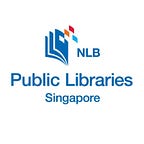Audiobooks: An Escape from Visual Fatigue
The following article is contributed by the author. Views and opinions expressed are the author’s own and do not represent the views of the National Library Board and its staff.
In my BC (Before Covid-19) life, I went to the office where I spent most of my day working on a computer. Meetings took time, but it also took me away from the screen and allowed me to interact with people directly. Nowadays, I have work and meetings, both at home, all of which are accomplished through my laptop. Face-to-face meetings, if they happen in real life, require us to hide our faces behind masks. Zoom and Webex meetings allow us to meet virtually, but behind our screens.
At the end of a regular workday, my eyes are fatigued. I am eager to get away from the laptop that I have carried across rooms in search of better Wi-Fi, or simply, for a change of scene. I am not inclined to pick up a book, certainly not an eBook, which looks like another document that needs my professional attention.
Thankfully, the National Library Board has an enviable digital collection that includes a large number of audiobooks. I had once tried a novel in this format a couple of years ago, but it failed to hold my attention, thanks to the humdrum narration.
During the circuit-breaker, I decided to give in another try, hoping that technology had improved over time. I am so glad I did.
Here are some recommendations for audiobooks that I truly enjoyed:
1. Kim Jiyoung, Born 1982 by Cho Nam-Joo
The experience of reading this bestselling Korean novel translated to English by Jamie Chang was like listening to a voiceover to a docu-drama. Despite my lack of familiarity with Korean culture, the impact of skewed gender expectations, and the unfairness that women in Korea face was a shocking reminder of my formative years in India. I sensed a visceral connection to the protagonist through this format because it felt as if a mutual friend was telling me Kim Jiyoung’s story.
Get the audiobook here.
2. What We Carry by Maya Shanbhag Lang
Curious about the backstory of this Indian-American writer who I discovered on a literary podcast, I checked out the audio version of this mother-daughter memoir that describes the early years of the author caring for her mother who has been diagnosed with dementia.
Not so much an illness memoir as one that deals with the author’s discovery of herself as a mother in the shadow of her own mother’s deterioration, the book serves as a powerful meditation on the role of stories and myths and the part they play in our own growth.
Get the audiobook here.
3. The Thing Around Your Neck by Chimamanda Ngozi Adichie
Adichie is famous, not just for her powerful prose with prize-winning novels like Purple Hibiscus and Americanah but also for the tiny powerful non-fiction book, Dear Ijeawele, or a Feminist Manifesto in Fifteen Suggestions that explains feminism and provides guidelines for inculcating principles of gender equality in a child.
The audiobook is brilliantly narrated by Adjoa Andoh who gets the accents of the characters and does a fabulous job with the dialogues that drive each of the twelve stories in this collection. Every story, regardless of its setting, highlights universal experiences that transcend national borders and other artificial divisions which we tend to follow, even when it comes to our reading preferences. My daily evening walks quickly turned into memorable experiences as I listened to these beautifully-crafted, moving stories.
Get the audiobook here.
4. I’d Rather be Reading: The Delights and Dilemmas of the Reading Life by Anne Bogel
A book written and narrated by popular podcast host, What Should I Read Next, Anne Bogel races through an autobiographical description of her life and how she became an inveterate reader. I envied her for living next door to a library, a location advantage that gave her a head start on reading and of course, the idea for her podcast and this book. The stars of this book are all the books she read and reread, books that left impressions on her across her life trajectory. From chapters about bookshelves to book acknowledgments, she picks interesting ways to dissect the life of a bookworm.
Get the audiobook here.
Although I turned to audiobooks as an escape from visual fatigue, I found listening to books quite relaxing, like a fleeting conversation. While I still love sitting down to read a physical book, it now feels like a bigger commitment, akin to stepping into a slow, deepening relationship.
The audio format makes it a bit difficult to go back and savour a beautiful phrase, something I often do with physical books. However, given the current situation with Covid-19 and the evolution of books in general, I see myself enjoying more audiobooks in the future, knowing that I still have the option to borrow or purchase the print version if the style of narration does not work or if I need to appreciate it on a deeper level.
-
Text by
Ranjani Rao
Ranjani Rao is a scientist by training, writer by avocation, originally from Mumbai, former resident of the USA who now lives in Singapore with her family. She has written for various publications including The Straits Times. She is co-founder of Story Artisan Press. Ranjani’s books, essays, and musings can be found on her website.
We publish our articles on our social media channels. Follow us on Facebook and Instagram to get the latest updates on our stories.
